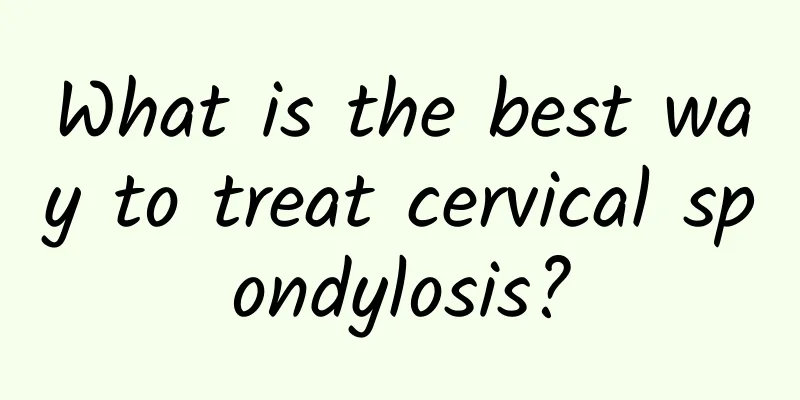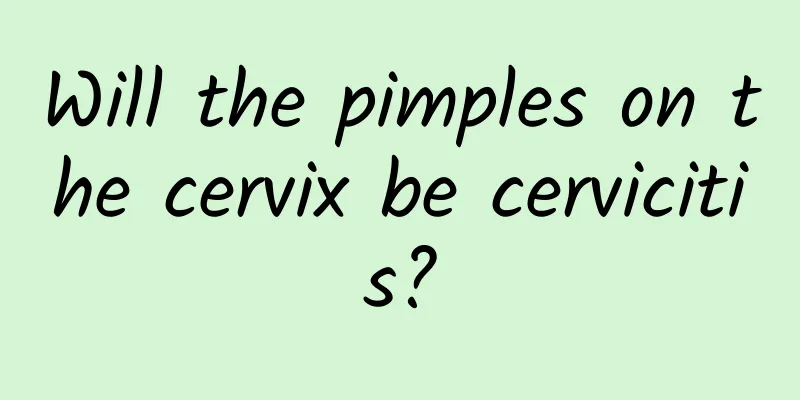What to do if your cervical vertebra is fractured

|
Although cervical vertebra fractures are not particularly common in life, they are quite harmful to patients. When cervical vertebra fractures occur, timely treatment is required. First of all, the airway must be kept open. In severe cases, a tracheotomy should be performed in time to avoid breathing difficulties in patients. During the treatment process, attention should be paid to the recovery of bone marrow function. While reducing pressure, the patient's edema should be eliminated as much as possible. What to do if your cervical vertebra is fractured 1. Keep the airway open. The openness of the airway is of great significance, especially for those with complete spinal cord injury above the 5th cervical vertebra. Tracheotomy should be performed as soon as possible. 2. Restore the morphology of the spinal canal and the stability of the vertebral segments. First, restore the alignment of the spinal canal through non-surgical or surgical methods, so as to eliminate the compression of the spinal cord. At the same time, efforts should be made to ensure the stability of the damaged vertebrae to prevent or aggravate spinal cord injury. In addition to using traction therapy to immobilize the cervical spine, anterior or posterior surgical therapy can also be adopted as appropriate. 3. Removal of compression objects in the spinal canal Whenever CT or MRI examinations confirm that there are compression objects in the spinal canal, they should be removed as soon as possible and internal fixation should be performed at the same time. Anterior cervical approach is usually the most common approach. For some patients with severe conditions, posterior cervical fixation is also required. For those in poor general condition, the operation can be postponed. 4. Promote the recovery of spinal cord function. On the basis of decompression, eliminate spinal cord edema and traumatic reaction as soon as possible, and give neurotrophic agents and drugs to improve blood circulation. For patients with complete spinal cord injury, the focus should be on restoring and reconstructing hand function, including root decompression (the injured must have preserved wrist function) and tendon transfer surgery. 5. In late-stage cases with incomplete paralysis, the main focus is on removing the compressive objects that hinder further recovery of spinal cord function and reconstructing the function; while for patients with complete spinal cord injury, the main focus is on vertebral stabilization, prevention of complications and rehabilitation.Commonly used drugs are: (1) Antipyretic and analgesic drugs: Those with severe pain can take aspirin, indomethacin, antacid, tendon relaxant, and anti-inflammatory agent orally. (ii) Vasodilators: such as nicotinic acid kallikrein, diltiazem, etc., can dilate blood vessels and improve blood supply to the spinal cord. |
<<: What to do when the head is tilted back and the cervical spine hurts
>>: Is moxibustion useful for cervical spondylosis?
Recommend
What to do if your stomach is bloated due to lack of bowel movements?
Not having a bowel movement is a problem that man...
How many types of herpes are there? How to identify several types of viral herpes
Herpes is a very common skin disease in life. The...
Fitness Deer Pills Effects and Functions
In daily life, we often hear some middle-aged and...
Treatment of miliaria
Milia miliaria is a common skin disease in infant...
Chronic Kidney Disease Stage 5?
Generally, when chronic kidney disease reaches th...
What should not be eaten by elderly people with contracture
Contracture, as the name suggests, means muscle s...
What does weak positive sialidase mean?
Neural enzymes show weak positivity, which is als...
Five summer dehumidifying soup recipes to help you cool down and get rid of moisture
In the south, although the summer is very hot, th...
Is restlessness a symptom of anxiety?
Restlessness is a common symptom of anxiety disor...
What causes dry and cracked upper lips?
As summer passes, the weather in autumn is bound ...
Will kidney stones cause back pain? Is this treatment effective?
Experts say that kidney stones can cause low back...
What does it mean to analyze peripheral neuropathy?
Peripheral neuropathy is a problem that cannot be...
What are the effects, functions and contraindications of safflower?
Safflower is a very ancient Chinese medicinal mat...
Six spring tips to deal with red bumps on your face caused by allergies
Spring is the peak season for skin allergies. Thi...
Treatment of neurological canine distemper
Neurological canine distemper is rare, but it is a...









